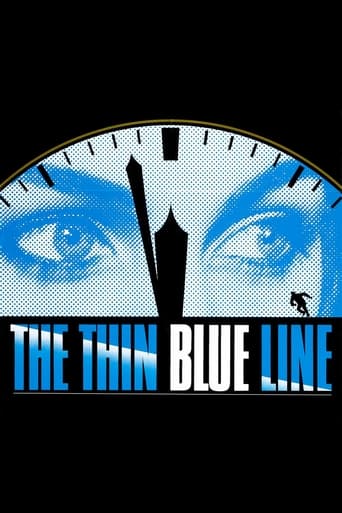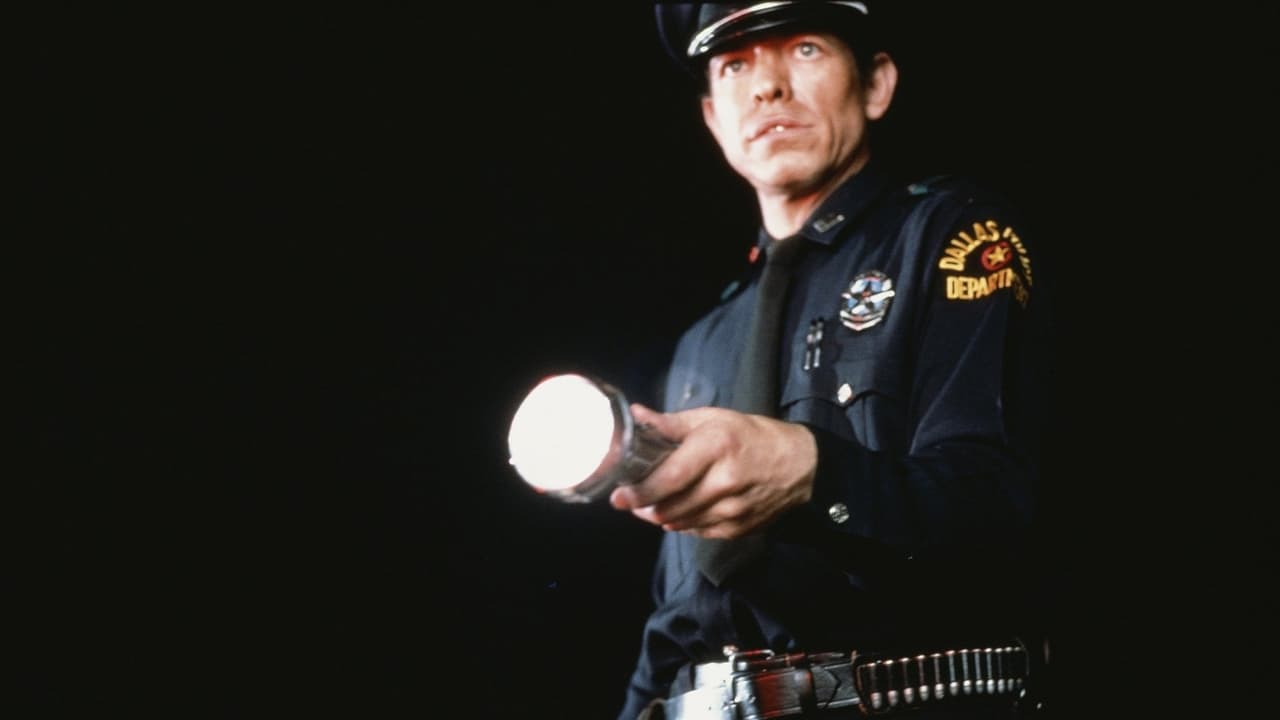rzajac
It's nice to know how legal/justice systems can run so badly off the rails.Had this thought: It is now May of 2017, and the U.S. has a "president" who often, on the stump, expressed the supreme value of "winning".This flick shows *exactly* why "winning" can never function as a standalone value. The prosecutor who went after Adams valued winning over all else... certainly over simple justice.I would say that is the moral of the story of The Thin Blue Line. Others will tell you it's about injustice or Due Process short-cutting or an illustration of how the Wild West ain't dead in Dallas. Those things are also true, but you have to understand where those things came from: They came (and likely still come) from an ethos of winning as a supreme value/virtue.I like shaggy dog stories which are extended parables on a simple moral idea, and that's what The Thin Blue Line is. This is Morris's bailiwick. He's passionately interested in finding a kind of universal equation of morality, and TTBL is a stepping stone in this quest.It's a certain kind of product, to be sure. It's a documentary: If you don't like documentaries, don't waste your time. But Morris expertly puts the material together, interlacing it with graphics, establishing shots, and reenactments to make the piece hum with subjective moral urgency. If that sounds like it might redeem the genre, then give it a go. Just be sure you're poised to pay very close attention.This was Morris's first proper, full- length treatment, and my introduction to his work. Took my mom and some buddies to watch it at The Inwood, probably a half a kilometer from where Officer Wood was shot.
Thomas Lingeman
The Thin Blue Line had both a fictional and non-fictional feel to it. Most documentaries, today, seem to follow on this same path. Well, at least the good ones do. What gave the film such a non-fictional feel to it were the on camera interviews and the actually shots of the characters written statements; the confession, the newspaper clippings, and court information. It was that hard evidence that grabbed the viewer and threw him in to the documentary. Also, I enjoyed how the characters were placed in front of the camera to help show they were conducting an interview. Even though no questions were asked to them, the audience could still get the feeling that they were being prosecuted right then and there. There were also elements to the story that gave it more of a "Hollywood" feel. This would be the reenactment of the shooting and other parts of the night. It was the overall style of how it was filmed that gave it this tone. They transitioning of different car brands, two different vehicles seemed to dissolve in to each other and the zooming in on the license plate and rear lights. Also, the over-dramatic slow motion close up of the milk shake seemed very "Hollywood". I have not viewed many documentaries outside of the ones from class, the ones I have seen are mostly sports related. I am not very familiar with the troubled conviction of old school documents. To me, The Thin Blue Line seemed to fit with the other documents that I have seen. However, I did find The Thin Blue Line to be very manipulative and deceiving. The whole time they are constantly trying to trick you about who the actual killer is. They did a great job confusing the audience in many ways; the actual story, who to cheer for, and are these cops corrupt.
Artimidor Federkiel
A car thief. A juvenile. Someone hitching a ride. Police on patrol, a routine check. A dead officer, brutally shot - instant murder, on sight. There's bragging about a killing. And a memory gap. A search for a killer. Five witnesses. An unanimous verdict. No doubts whatsoever. A death sentence. Finally: an execution. - These at least are some facts of the case involving Randall Adams and David Harris, who met by chance at a Thanksgiving weekend on their way to Dallas. Components to form a larger picture, a picture that documentary filmmaker Errol Morris chose to redraw when he stumbled upon the case and grew more and more puzzled with its alarmingly unchallenged outcome before court. How does it all fit together, as the stories of the suspects obviously don't match? A private investigator himself at the time, Morris poses the right questions to everyone involved - Adams himself, Harris, the guy he hitched a ride from, the police, various detectives, witnesses, the attorneys. He also illustrates their versions on how the killing happened with contradicting re-enactments, usually a clear no-go for documentaries. Morris didn't know better what was expected of him at the time, but presenting the material cinematically - with close-ups, slow-motion and a haunting score by Phillip Glass - leaves a huge impact. However, except from his editing process, Morris lets the impressions stand as they are before the viewer without commenting himself. The result is intense and involving, spine-tingling, gripping and grizzly, and the last images will leave you shell-shocked and speechless. Criminals always lie, you know. Innocents usually tell the truth. Police should have an inkling in this regard.The riveting story of Randall Adams and David Harris doesn't end with the film. However, your trust in the Texan judiciary system might have reached its limits once you've seen Errol Morris' filmed investigation in the case. Now what about that thin blue line? Between good and evil, citizens and perpetrators? Where is it? Who draws it? Who blurs it? Are the interests of such people the same as yours, the citizen's? It all comes down to the question: Do you feel safe and protected by the law? Think again.
Tom Martin
This is so powerful and well done! An unbelievable but true story.One of the best documentaries I've ever seen because it makes you both wonder and worry about how the justice system works. How many innocents are caught in the system and how difficult it must be when the authorities refuse to question their own judgment for fear of looking bad.Masterfully edited to hold your attention from start to finish with gripping interviews. Morris knows how to pace things just right. He doesn't belabor points that don't need it but doesn't rush through his interviews.Thank you Errol Morris for opening my eyes and feelings for the (probably many) innocents caught and still not freed. This is what a documentary should be.


 AD
AD


